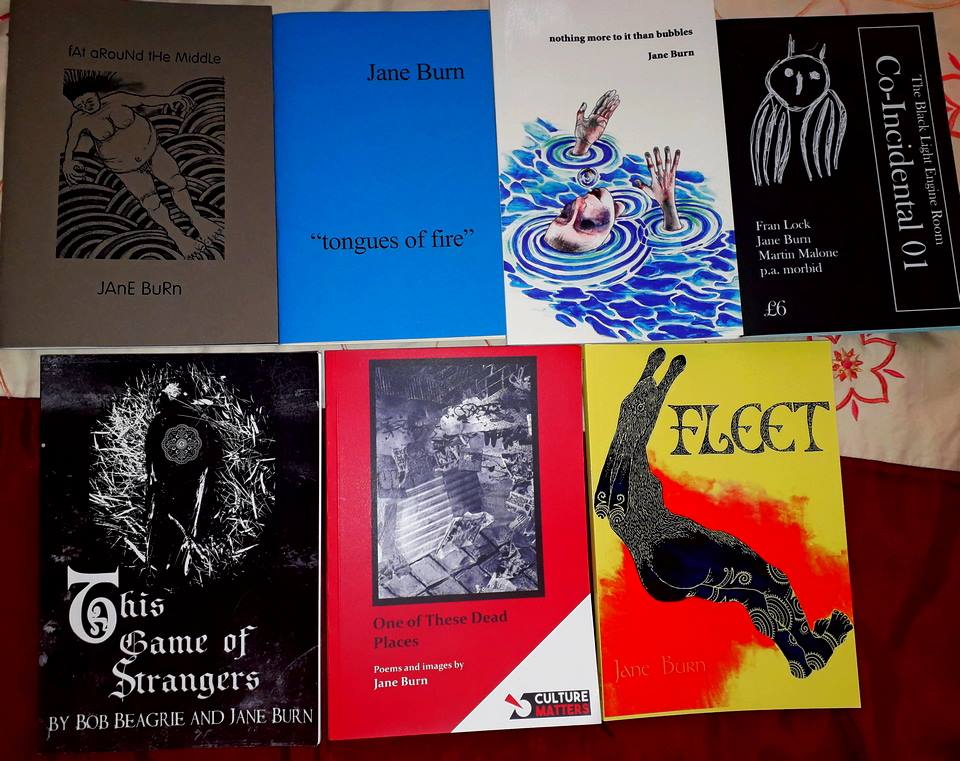
JANE BURN – POETRY AS HARD GRAFT, INSPIRATION, REACTION OR EXPERIMENT?
I interviewed poet & artist Jane Burn who won the Michael Marks Environmental Poet of the Year 2023-24 with A Thousand Miles from the Sea.
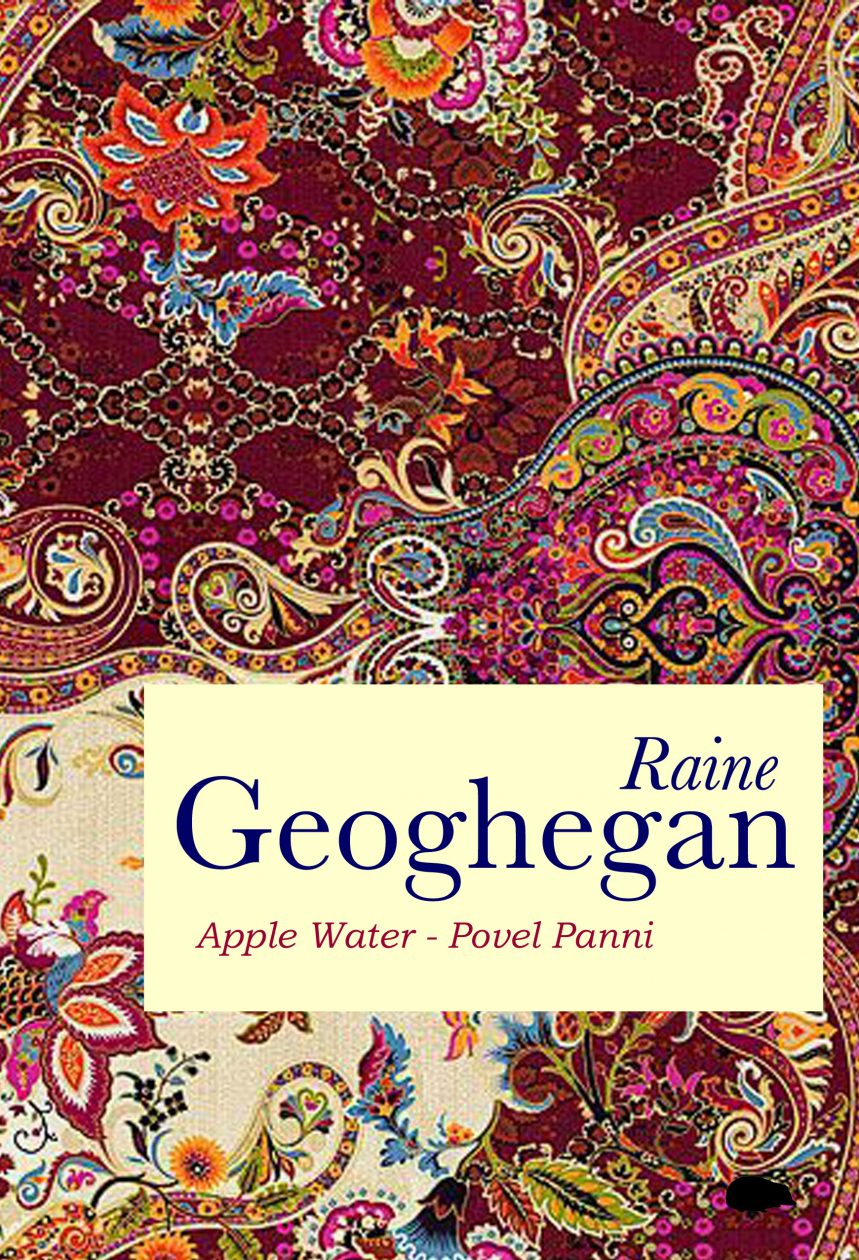
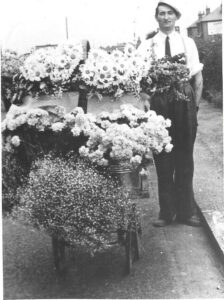
I Interviewed Raine Geoghegan about how her Romany roots have opened up a new world of film and poetry for her. Raine’s poetry has been nominated for the Pushcart Prize, The Forward Prize for Best single Poem, the Saboteur Awards, Best of the Net 2018, and her collection Apple Water: Povel Panni was chosen by the Poetry Book Society for its Spring 2019 Selection. Raine has an MA in Creative Writing and has had M.E. and Fibromyalgia for twenty years.
Leslie: Can you describe the writing of Apple Water: Povel Panni from first draft to final collection?
Raine: I have been working with a mentor, James Simpson, who suggested that I write about my Romany roots. I spent some time sitting quietly, thinking about my family, the strong women, like my mother and my granny. I visualised a woman, a nomad. She was walking along the road. She seemed at one with nature, bending to pick flowers, drinking spring water. With my eyes closed I watched her as she kept on walking and I saw her body begin to age.
‘At night she slept in bushes, caves, beside trees. She dreamt of fire. She drank from streams, picked heather, lavender, rosemary for healing, exchanged them for bread, kept on walking.’ The Lungo Drom, published in Words from the Wild Anthology, 2018
This was the first poem that I wrote, and shortly afterwards as I continued to write, it felt as if I had opened the lid on many stories and vignettes that were waiting to be told. I have written poems, haibuns, monologues, songs, flash and prose pieces, or vignettes. They are all part of a much bigger picture. They show what life was like, not just for my own family but for many Romany folk.
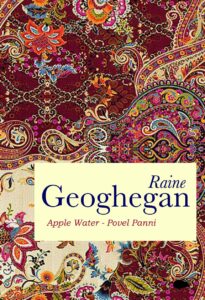 Apple Water: Povel Panni came together in a very organic way. I had written over fifty pieces of work and needed a book to sell at the Ledbury Poetry Festival. I approached Mark Davidson at Hedgehog Poetry Press after he had expressed interest in my work and had published ‘Hotchiwitchi’ in ARFUR, an anthology. He agreed to publish my first pamphlet and so I set to work on choosing a selection of my poems and monologues. I had already sent off fifteen poems for a competition so couldn’t use those particular ones, however I managed to pull together a selection of my work and family photographs and my first pamphlet was born. I decided to use a variety of forms, which included free verse; triolets, monologues, prose poems and songs. I also included haibuns which suit the work really well. How thrilled I was to have a review by David Morley, winner of the Ted Hughes Award for New Poetry in 2018. He had already been extremely helpful to me with regard to my writing about the Roma. Here’s what he wrote:
Apple Water: Povel Panni came together in a very organic way. I had written over fifty pieces of work and needed a book to sell at the Ledbury Poetry Festival. I approached Mark Davidson at Hedgehog Poetry Press after he had expressed interest in my work and had published ‘Hotchiwitchi’ in ARFUR, an anthology. He agreed to publish my first pamphlet and so I set to work on choosing a selection of my poems and monologues. I had already sent off fifteen poems for a competition so couldn’t use those particular ones, however I managed to pull together a selection of my work and family photographs and my first pamphlet was born. I decided to use a variety of forms, which included free verse; triolets, monologues, prose poems and songs. I also included haibuns which suit the work really well. How thrilled I was to have a review by David Morley, winner of the Ted Hughes Award for New Poetry in 2018. He had already been extremely helpful to me with regard to my writing about the Roma. Here’s what he wrote:
“These are poems of Roma memory and survival brought to life through beguiling lyric and dramatic telling. They bring a way of living, of thinking, listening, and seeing into immediate and natural focus.”
The first and last pieces in the pamphlet are two parts of the same poem called ‘Romanichals in the 1950’s’, here’s the first:
‘covels packed/ chavies scrubbed clean/ me rackley’s bal/ washed with panni/ the grai grizhomed/ holled.’
Romani words: Romanichals – English Romany’s; Covels – belongings; Chavies – children; Rackley’s – girls; Bal – hair; Panni – fresh water; Grai – horses; Grizhomed – groomed; Holled – fed.
Leslie: What events, personal stories and photographs, as well as ‘found’ words have gone into your poetry collection?
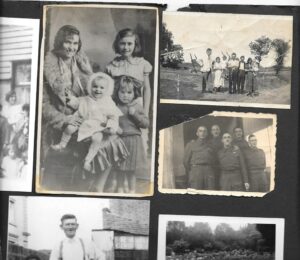
Raine: The first family member that I connected with was my Granny, Amy Lane. I was close to her and had lived with her when I was a child. Her mannerisms, way of speaking, her expressions all live within me. It felt like the easiest thing in the world to speak to her and to listen, even though she had passed away some years earlier. Story after story came to me, all I had to do was write down what I remembered, what I saw in my mind. ‘In the Back Yard at Winslow Way’ is a prose piece which reflects a time when as a child my sister and I would often play in the garden, she often used to lie on her back with the pet tortoise on her stomach or chest. My Granny liked to sit in the sun, my Mum pottered or generally kept busy. Here’s an extract:
‘Granny’s sitting in a deck chair. She’s fanning herself with an old Spanish fan. She has a straw hat on and her cheeks are bright red. Behind her is a low whitewashed wall, beyond that the long garden full of fruit trees and vegetables. ‘Good God, it’s ‘ot.’ She says./ She is wearing a pale pink dress with red polka dots on and a red and white pinafore. Her freckled bare legs stretch out in front of her. Her feet in sandals, her big toe nails painted red.’ She drinks her tea and says: ‘Ooh, that’s a kushti cup of mesci, nice and strong.’ Later in the story the tortoise is accidently thrown to the ground and lands upside down. ‘Oh my lord, you’ve mullered it, quick pick it up.’ (p.22)
Found words and phrases like ‘that’s a kushti cup of mesci’ and ‘you’ve mullered it’ were commonplace in my family, as was ‘jel on’ and ‘keep movin.’ I often use songs, some which I write myself, others are known to the Roma culture. In ‘Keep Movin’ the Travelling people are on the road, they pull up in a field and begin to prepare the children for dinner then bed. The police come and force them to pack up and leave.
‘Us malts started to sing./ I’m a Romani rai, a true didikai, I build all my castles beneath the blue sky. I live in a tent, I don’t pay no rent an’ that’s why they call me a Romani Rai.’
‘As the men untied the ‘orses, me and ria cleared up the rubbish. I ‘eard the gavver say ‘bleedin’ gypos.’ My Alfie called out, ‘the gavvers are grunts, let’s jel on, keep movin.’ (p.11)
I kept a journal with many of the found words and phrases in it, as well as old songs and the Romani words (jib). I also discovered old photographs of my family and their cousins and friends, which you will see from part of the pamphlet. Deborah Tyler-Bennett, mentioned these images in her delightful review of ‘Apple Water: Povel Panni’ –
‘What Hedgehog achieved with the look of the chapbook, was to mimic aspects of a family album – a deeply personal set of poems matched by a cover printed from a Romany shawl, inner-pages with a stunning photograph of the poet’s Mother, and family pictures placed throughout the volume. The effect of this cohesiveness between text and illustration was that you felt as if you were being let-in-on something intimate, and the small pamphlet became a slender album of insights into Romany family life.’ Under the Radar, Issue Twenty-Two, 2018.
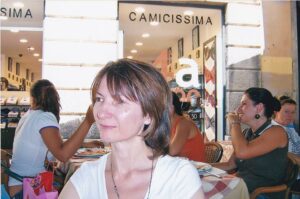
Of course, as well as using found words and phrases I was also re-learning the Romany language (jib). I knew a fair amount of it but I so enjoyed finding new words and re-discovering some old ones. The language originates from Indian Sanskrit and Hindi. Matras (2006) views Romani as “a type of Indian hybrid: a central Indic dialect that has undergone partial convergence with Northern Indic languages.” As the Travelling Gypsies moved across the world, the language changed, depending on the country and region, even here in the UK there are variants, also in Wales and Scotland. Recently I had the good fortune of being asked to write an endorsement for ‘Shikawa Romanus,’ a programme of Welsh Romani language, by Robert Lovell Kamulo, produced by Frances Roberts Reilly who is the founder of the John Roberts Heritage Fund. It is available online and comprises of twenty two episodes of translations from the old Welsh Romani language into English. Now everyone can learn this beautiful language. My family spoke the old English Romani but many of the words are the same as the Welsh. Shukar means beautiful, hotchiwitchi is hedgehog, kamavtu is I love you and one of my favourite words is ‘skimmished,’ have a guess what it might mean. I’ll tell you at the end of the interview.
I am always learning about the Romany culture, the traditions, the language and rituals. I write about what I know but also what I long for. It’s interesting that these past six months my husband and I have been travelling from Sussex to Gloucestershire, then onto Herefordshire and now looking to move to Worcestershire. Our stopping places, (atchin tans) have been houses and mobile homes. On the way I discarded a lot of stuff, not just my belongings but on a deeper level, old habits and beliefs. I am feeling a lot freer in myself. I have also met some lovely people along the way and although I do long for a home where I can settle I can imagine what it must have been like for some members of my family who did travel, whose home was the vardo, but that is a subject for another time.
Leslie: Can you explain, how you became involved in the film, ‘Stories from the Hop Yards’ and how the film and your words came together?
Raine: ‘Stories from the Hop Yards’ is a documentary film which features the stunning photography of Derek Evans. He deployed photography as a means to document the social history of Herefordshire and surrounding counties. I was contacted by a researcher, Marsha O’Mahoney after my poems on hop picking were published in Romany Routes, the journal of the Romany & Traveller Family History Society. Marsha was working with Catcher Media, a film company based in Hereford who were the instigators of the Herefordshire Life through a Lens Project, largely funded by the National Lottery Heritage Fund. Much of Evan’s work was concentrated on the land and hop picking was a popular activity that many local folk would participate in, especially the Romany Travellers. My family, the Lane’s and the Ripley’s used to pick hops in both Kent and Herefordshire. They were regular pickers in Bishop’s Frome.
‘We got to the ‘op fields just as the sun was coming up. We walked across the poove and there was our Aunt Amy, pouring panni from the kettle into the big brown teapot. She’d covered the table with a white lace cloth and ‘ad laid out ‘er best china crockery.’ The Table in the Hop Fields, Bishop’s Frome, Shirley’s Tale, published in ‘Apple Water: Povel Panni, December 2018 by Hedgehog Poetry Press.
I was interviewed in the Village Hall in Bishop’s Frome in September 2017. The full interview was not featured in the film, but my poetry and songs were, along with a group of photographs of my family, some picking hops or standing by the cribs. (pic here)
I attended the screening at The Courtyard in Hereford last February and was invited to read some of my poetry as well as join in with the post film discussion. The film was both moving and educational. It shone a light on a time when people worked exceptionally hard for little money but lived life to the full.
In July 2018 I was invited to another screening at the Market Theatre in Ledbury where I read my poetry and sang some Gypsy Lullabies as part of the Ledbury Poetry Festival. The event sold out and was extremely well received. My first small poetry collection, ‘Apple Water: Povel Panni’ published by Hedgehog Press had just been printed and I was able to sell it at the event. There was local beer from the Wye Valley too.
Following the film I was contacted by a teacher at the Wellington Primary School who were making their own short film on hop picking as part of the Herefordshire Life through a Lens Project. She wanted to know if I would give permission for the children to use my poem, ‘A Memory of the Hop Fields’ in the film, a request that I immediately agreed to. They created a beautiful piece. I was touched that the children had chosen this poem as it means a lot to me. It is about my Granny, Amy Lane, who loved hopping.
Leslie: Can you finish with another example of your poetry, please?
Raine: Here is the second part of Romanichals in the 1950’s, which is the last poem in ‘Apple Water; Povel Panni.’
Opre and jel on/ dikk the next atchin tan/ a fellow chal pookers,/ “kushti bokt” Romani words: Opre – arise; Dikk – look for; Atchin tan – stopping place; Chal – Travelling man; Pookers – speaks/calls out; Kushti Bokt – Good luck.
Good luck are words that I’ve heard a lot of over the last six months. Over the last eighteen months since I began writing the Romany work I have had an abundance of luck and recognition. My work has been nominated for the Pushcart Prize (twice), the Best of the Net 2018, The Forward Prize for Best single Poem, the Saboteur Awards and Apple Water: Povel Panni was chosen by the Poetry Book Society for the Spring 2019 Selection. I was invited to read at the Poetry Ireland Review launch in Dublin last December and met Eavan Boland who told me how much she liked my work. The reviews have been amazing and I have met some beautiful people. My work has been published in journals all over the world and I have read in the UK, Wales and Ireland. 2020 is going to be a busy year as I now have a new book out called, ‘they lit fires: lenti hatch o yog,’ again published by the innovative Hedgehog Poetry Press. It will be launched very soon and I have readings and performances lined up. I struggle at times with a long term chronic illness and disability and for those who read my last interview they will know that my previous career as a dancer/actress and director came to an abrupt end as the illness forced me to remain in bed for many years. I am so grateful to Great Spirit for guiding me along the path, for bringing poetry into my life and for re-connecting me with my Romany ancestors. Baro parruka tute. Crush on soobluh. (A big thank you. Keep the faith.)
‘skimmished – drunk’
Next week is the first half of a two part interview with Michelle Payette-Daoust about living with incurable cancer
ABOUT LESLIE TATE’S BOOKS:

I interviewed poet & artist Jane Burn who won the Michael Marks Environmental Poet of the Year 2023-24 with A Thousand Miles from the Sea.
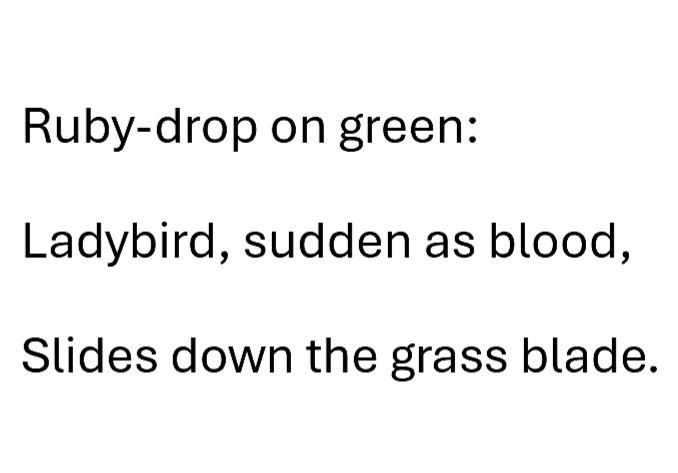
I interviewed ex-broadcaster and poet Polly Oliver about oral and visual poetry, her compositional methods, and learning the Welsh language. Polly says, “I absolutely love
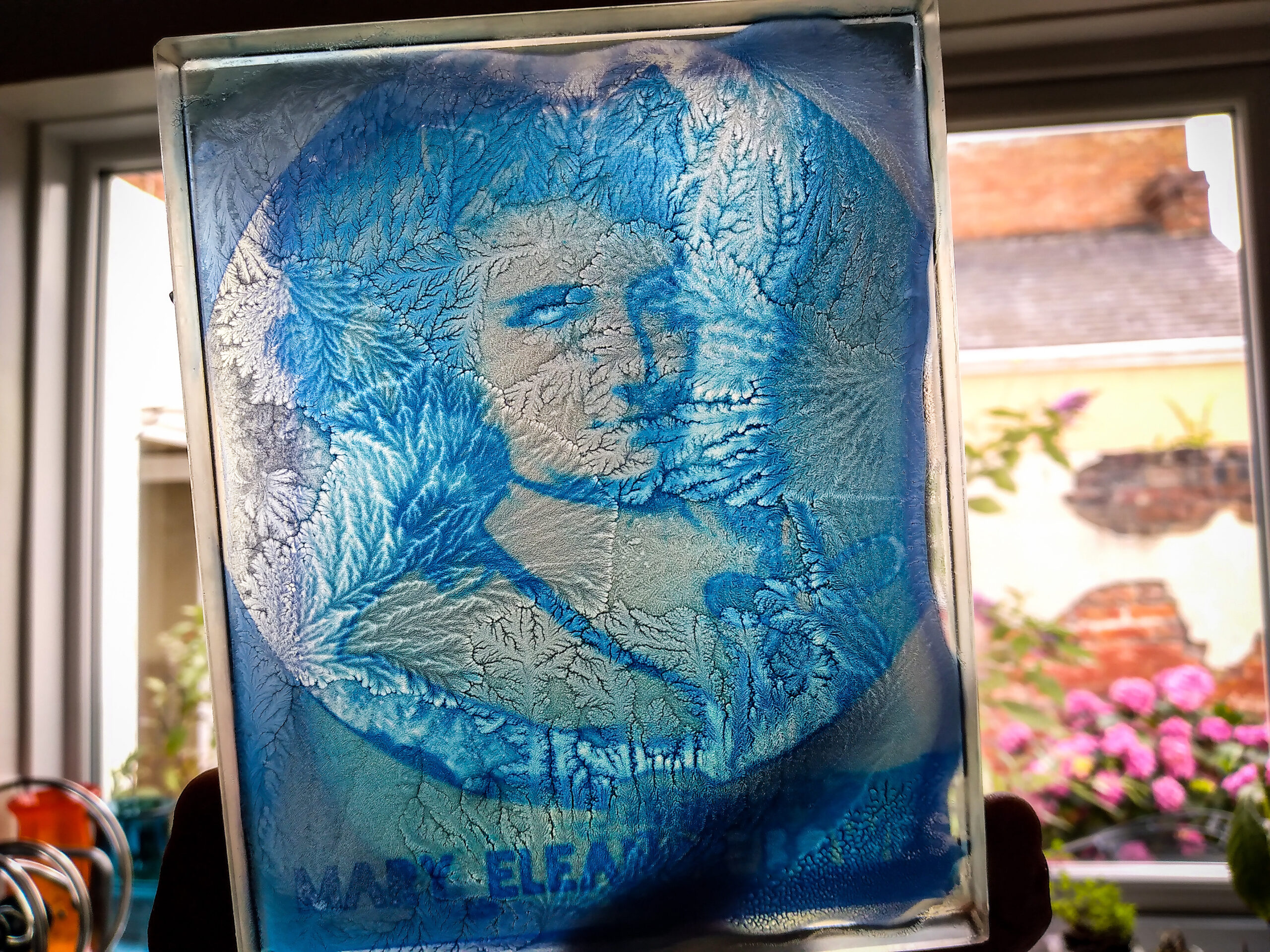
I interviewed Jo Howell who says about herself: “I’ve been a professional photographic artist since I left Uni in 2009. I am a cyanotype specialist.
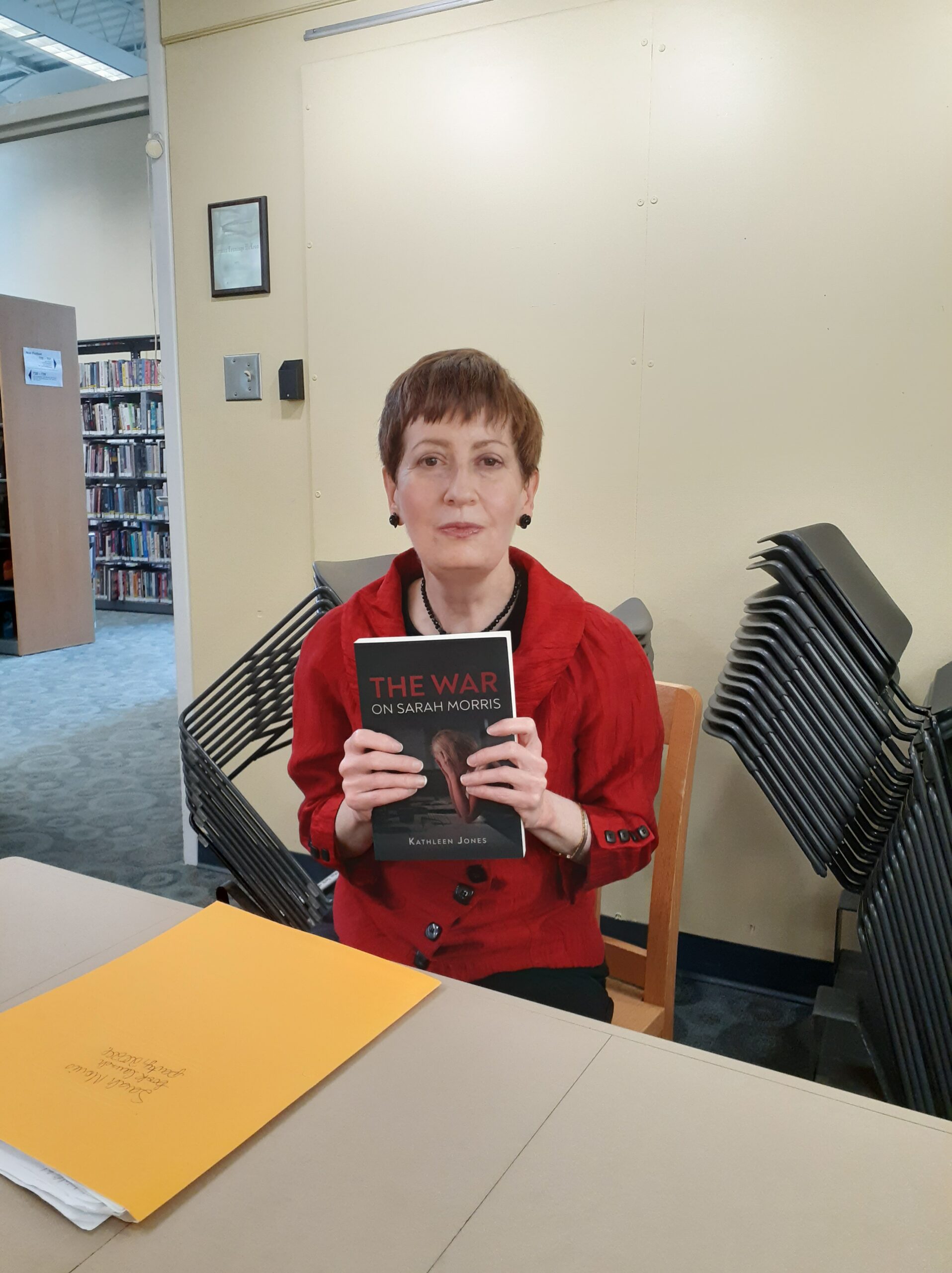
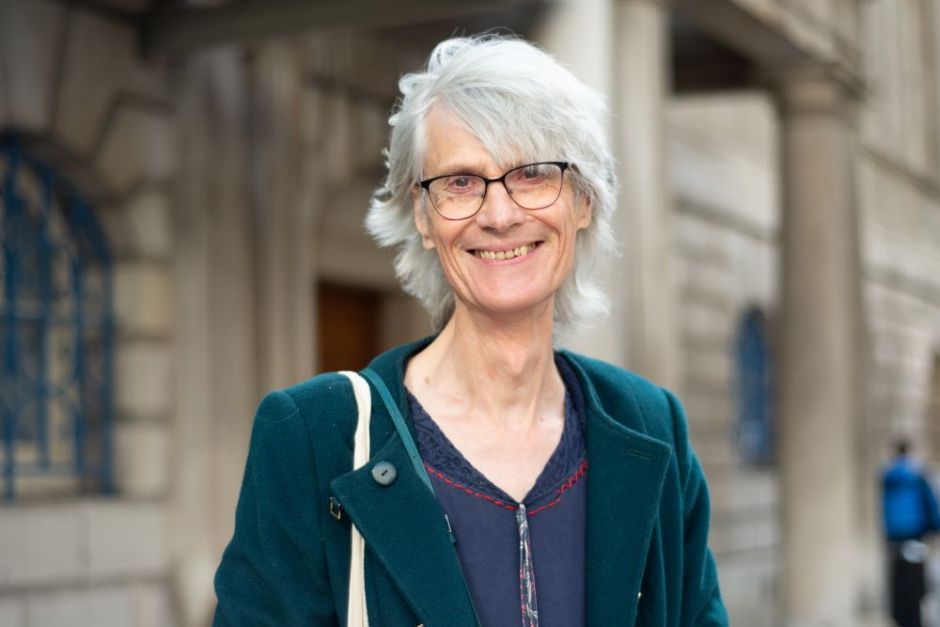
Poet Tracey Rhys, writer of Teaching a Bird to Sing and winner of the Poetry Archive’s video competition reviews Ways To Be Equally Human. Tracey,
| Cookie | Duration | Description |
|---|---|---|
| cookielawinfo-checkbox-analytics | 11 months | This cookie is set by GDPR Cookie Consent plugin. The cookie is used to store the user consent for the cookies in the category "Analytics". |
| cookielawinfo-checkbox-functional | 11 months | The cookie is set by GDPR cookie consent to record the user consent for the cookies in the category "Functional". |
| cookielawinfo-checkbox-necessary | 11 months | This cookie is set by GDPR Cookie Consent plugin. The cookies is used to store the user consent for the cookies in the category "Necessary". |
| cookielawinfo-checkbox-others | 11 months | This cookie is set by GDPR Cookie Consent plugin. The cookie is used to store the user consent for the cookies in the category "Other. |
| cookielawinfo-checkbox-performance | 11 months | This cookie is set by GDPR Cookie Consent plugin. The cookie is used to store the user consent for the cookies in the category "Performance". |
| viewed_cookie_policy | 11 months | The cookie is set by the GDPR Cookie Consent plugin and is used to store whether or not user has consented to the use of cookies. It does not store any personal data. |